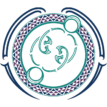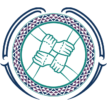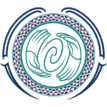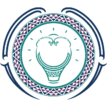About us
Whāia te ara poutama, ngā tapuwae o Tāne
In October of 1878, two large ton vessels, the barque Felixstowe, and the fully rigged immigrant ship City of Auckland, were bringing British settlers to New Zealand. During a catastrophic storm both ships sank in high seas, offshore from the entrance to the Ōtaki River. The kōhatu in the background photograph memorialises the sinkings but also serves as testimonial to the living and the disaster risk reduction abilities of tangata whenua. The plaque by the stone reads “The Māori of the Ōtaki district acted with great skill and courage to bring passengers ashore”. All of the ships’ passengers survived.
The 19th century exemplar of Māori emergency management is one of many, and typical of the ways tangata whenua draw on whakapapa, mātauranga Māori, kaupapa, tikanga and taonga, to respond to challenges created by the environment in Aotearoa. As a result of historical and recent disaster risk management successes, our bodies of knowledge and approaches to whakaoranga (enhancing wellbeing) across communities, are increasingly being recognised in government disaster management policies and practices. Yet a research centre that is centred within te ao Māori and dedicated to addressing Māori disaster risk reduction aspirations, in partnership with iwi, hapū and whānau, has been lacking.
Te Toi Whakaruruhau o Aotearoa, our new mātauranga Māori Disaster Risk Reduction Centre hosted at Massey University, has been created at the request of tangata whenua to address this resource gap. As significant seed funding has been provided by the Earthquake Commission (EQC) the centre is envisioned as a partnership between the EQC and Massey University, but our emerging researchers and research partners are situated throughout New Zealand.
We officially launched our centre on Friday the 10th of July, 2020, a date we selected to align with the rising of Puanga the herald of Matariki. Going forward, Te Toi Whakaruruhau o Aotearoa is committed to developing research that addresses issues related to disasters, natural hazards, and risk reduction. We are working with iwi whānui to increase Māori disaster research capability, through developing the next generation of Māori researchers as well as the disaster risk and resilience research capacities of our communities. Our research is designed and conducted in partnership with iwi hapū and whānau, in response to needs identified by our communities and in accordance with kaupapa Māori. Planned projects encompass safe housing, climate change and flood impacts, land use planning, disaster recovery, digitised risk profiling, community resilience, disaster risk reduction, emergency management and urban design.
We welcome kōrero and invite iwi whānui, local government and crown agencies to contact us in order to discuss any research queries or concerns they may have, and we look forward to creating new research partnerships that will contribute to the waiora of Te ao Māori and more broadly, Aotearoa.
Dr Christine Kenney

Creating respectful and trusting relationships
The centre will employ a communitarian approach enhanced through the creation of respectful and trusting relationships that foster inclusivity, nurture mutual support and collaboration, encourage social cohesion, and effective engagement with all sectors, including the sharing of recovery perspectives, experiences and resources.

Acting with integrity, generosity and compassion
The Centre demonstrates best practice by valuing the wisdom, culture and expertise of Iwi, Rōpū Māori, Māori disaster risk reduction champions, peer researchers as well as community and research stakeholders. Centre researchers respond with integrity and generosity in ensuring the diverse research, science and knowledge requirements of all sectors are addressed with sensitivity and respect.

Unity, centre leaders, fellows, associates, partners and stakeholders acting as one
The creation of Mātauranga Māori, disaster risk reduction science and collective wisdom is a values- based process inspired by unity of purpose and a commitment to collective decision -making as well as collaborative engagement and action.

Collective stewardship and collaborative guardianship of taonga
The centre will demonstrate culturally responsive stewardship and guardianship of Mātauranga Māori, ngā taonga tuku iho, and fellows/emerging researchers. Uptake, adaptation and /or implementation of new knowledge or practices resulting from the centre research will be subject to cultural guidance of mātauranga/knowledge holders.

Negotiating actions, challenges, change and acceptance
Centre endeavours will be enhanced through negotiating respectful acceptance of innovations and change, facilitating generous redress and nurturing reconciliation of differences, including social, health and economic disparities to creating a resilient, equitable and inclusive nation.

Solutions-focused through Innovation and creativity
The Centre will be bold and innovative in finding creative solutions that resonate with our communities around risk, resilience, information sharing and effective communication. Solutions will focus on transformation of our communities through weaving Mātauranga Māori (ā iwi, ā hapū) and science.
The National Disaster Resilience Strategy, advocates that “everyone has a role in a disaster resilient nation”. Te Toi Whakaruruhau o Aotearoa (The EQC Matāuranga Māori Disaster Risk Reduction Centre) will contribute to creating a resilient New Zealand through building Māori disaster risk reduction research and workforce capabilities as well as developing and applying indigenous innovation to minimise hazard risks and impacts on the people and taonga of Aotearoa.